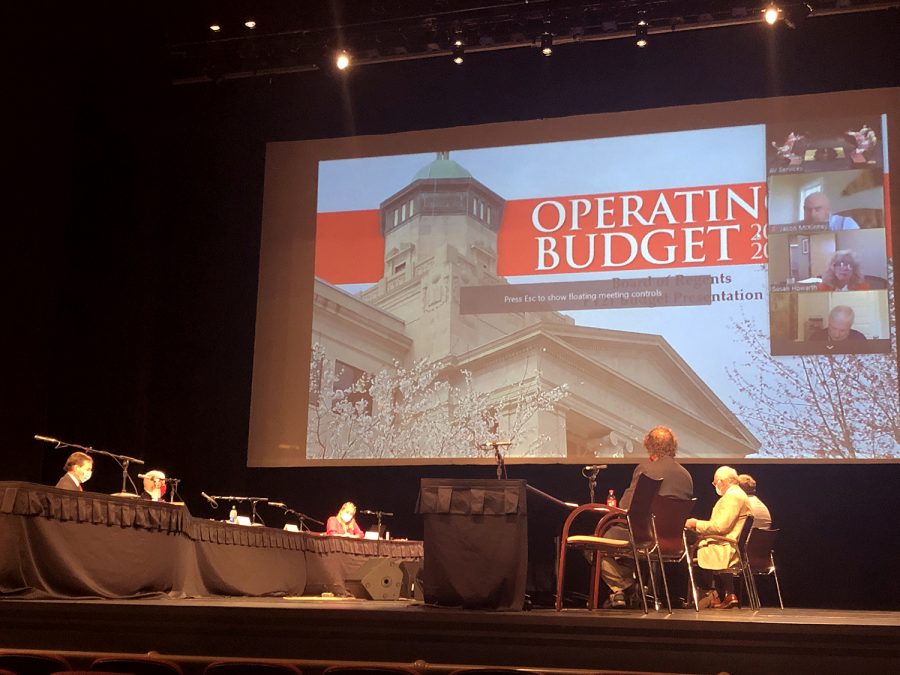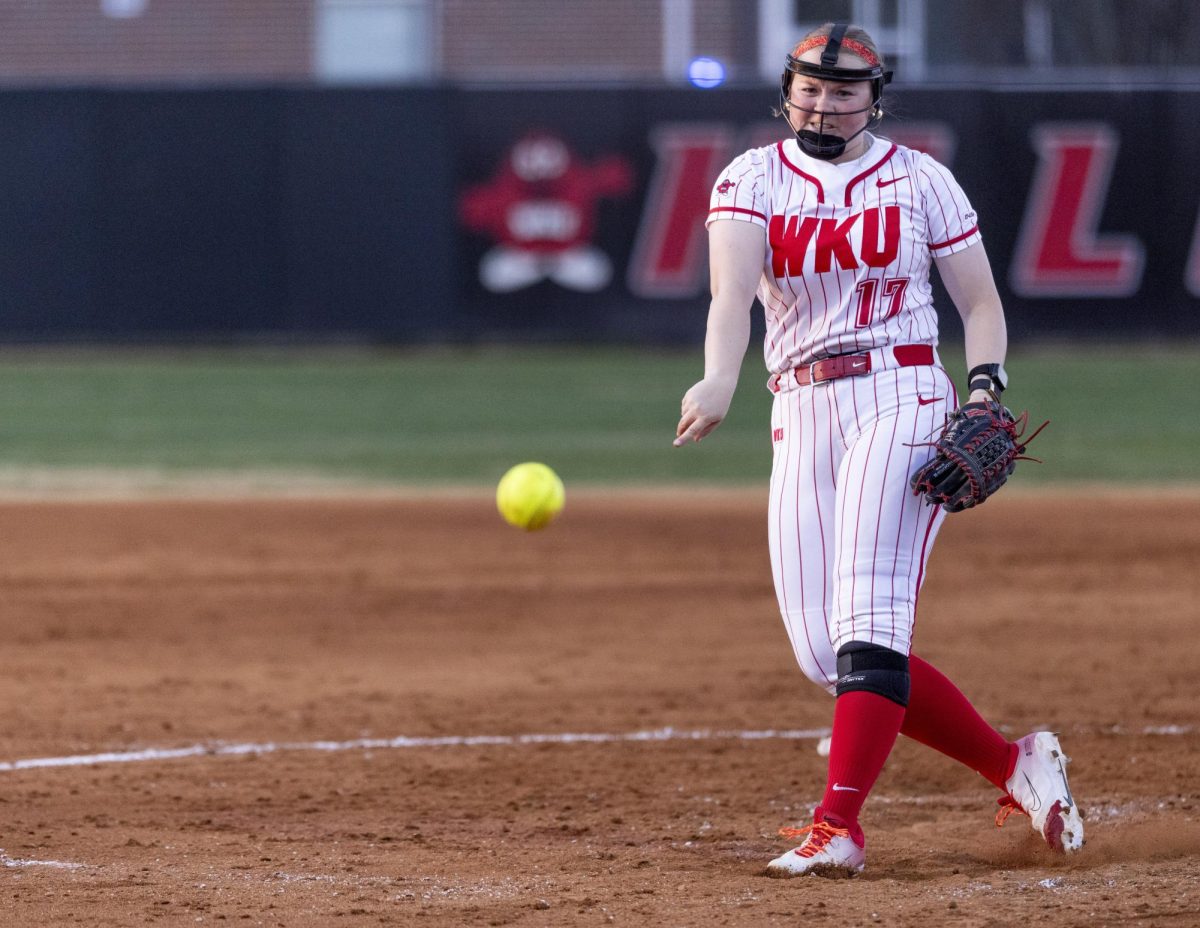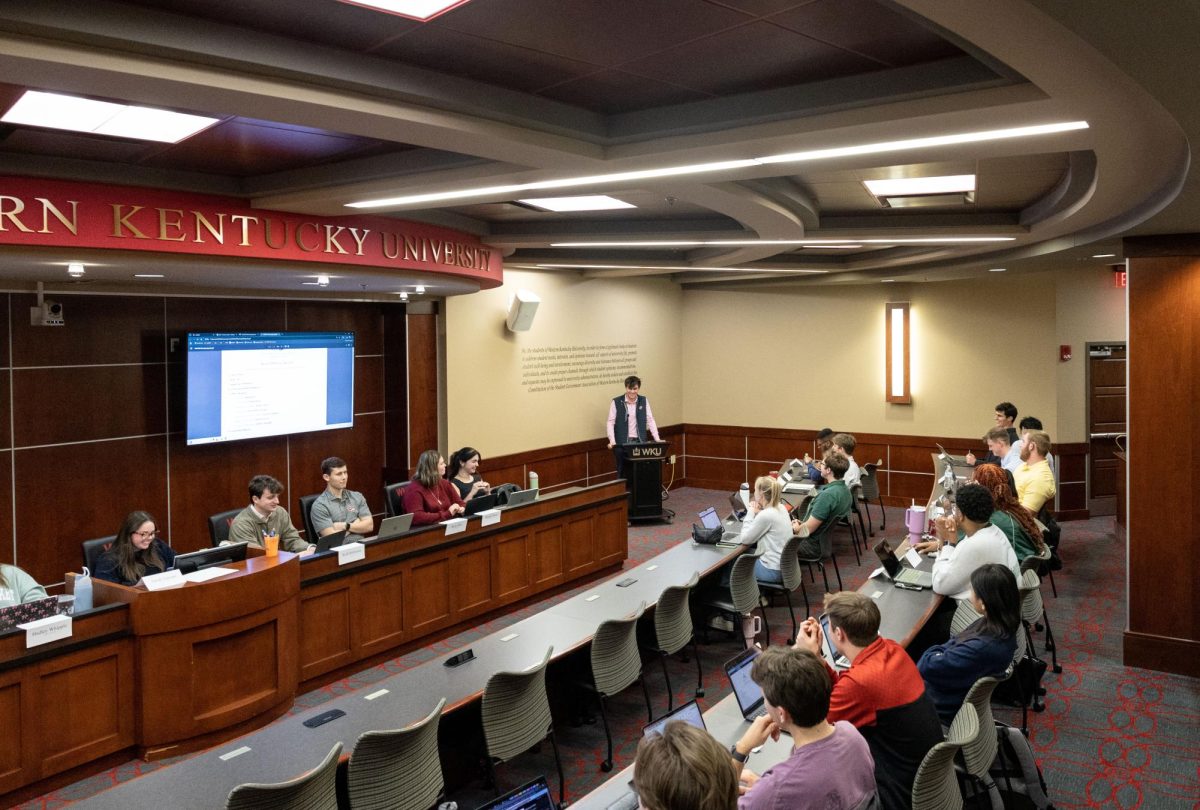Board of Regents approves new budget, tiered salary reductions in special meeting
June 26, 2020
The WKU Board of Regents previewed what the hybrid classroom model could look like in a special budget approval meeting on Friday. Five regents were practicing social distancing inside of the Van Meter auditorium while others joined the meeting on Zoom.
The unique environments did not stop the regents from unanimously approving the 2020-21 operating budget and tiered salary reduction plan. The approval of both will allow the university to move forward with its restart plan–the Big Red Restart.
WKU is expecting a $27 million shortfall this upcoming year. The university is attributing much of this deficit to the detrimental economic impact of the COVID-19 pandemic. In response to the pandemic, WKU decided to trim various departmental budgets, but faculty and staff members are expected to feel the economic impact as well.
The tiered salary reduction plan will save WKU $2.4 million by cutting faculty and staff salaries. Faculty and staff members who are not under contract and make more than $50,000 per year are required to take the pay cut. Any faculty and staff member who is under contract can voluntarily opt in to a reduced salary.
If the university’s revenue surpasses the current projection of $353 million, President Timothy Caboni asserted that the administration would give the unexpected revenue to faculty and staff members first.
Claus Ernst, the faculty regent, said that the new budget has made some faculty members anxious and even angry.
“A lot of faculty feel like they will be bearing the brunt of these adjustments,” Ernst said. “ They have to use the summer to prepare for [a new style of] teaching. They are asked to do things differently. Some of the faculty will have additional courses to teach than they had before because we got rid of a lot of [adjunct professors] and so for some faculty there will be an increase in teaching load.”
Provost Cheryl Stevens responded to Ernst by stating that the administration has been communicating with faculty members frequently during the last few months of preparation.
“We have been talking [to] and including faculty opinions and voice in all of our discussions,” Stevens said. “I do recognize how hard this has been for faculty.”
Stevens believes the university must provide a balance of in-person, online, and hybrid classes for students. If these students do not receive the experience they were anticipating when they read the Big Red Restart plan, they won’t come, Stevens said.
“And if they don’t come, it will be financially devastating for us,” Stevens said.
On Thursday, the Faculty Senate and the WKU chapter of the American Association of University Professors issued a joint statement that was addressed to Caboni, Stevens, and Ernst. In the statement, the organizations demanded that faculty should have control over how they teach. The organizations also advocated for free widespread COVID-19 testing, no job losses, and no excessive workloads.
Stevens wants the administration and faculty to come together in order to solve complaints about the restart plan.
“This has to be a conversation that involves all parties and it’s feeling like it’s becoming a little adversarial,” Stevens said.
During a presentation on the 2020-21 budget, Ernst asked Strategy, Operations, and Finance Vice President Susan Howarth if the budget reductions for the upcoming year would be temporary or permanent.
“There’s some uncertainty around this because we just don’t know if all of these dollars will necessarily be permanent or if it’s going to be a one-time because of COVID-19,” Howarth said.
Caboni wants departments to be prepared to make permanent changes to their budgets.
“I would encourage every dean and every VP in every conversation that I had, that if there’s a permanent reduction to your budget, you have to make permanent cuts,” Caboni said.
Caboni said that he understands the difficulty of the challenges ahead.
“We are sacrificing together to get through the pandemic and we are protecting the things that are important to us as an institution,” Caboni said. “We are setting the stage to emerge on the other side of this much stronger than we entered.”
Following a break, the Academic Affairs committee approved graduate certifications in data analytics and cybersecurity data analytics, and an undergraduate certification in floodplain management. The committee also recognized the emeritus status of Dr. Dawn Bolton, an associate professor in the Gordon Ford College of Business, and Dr. Wieb Van der Meer, an astronomy and physics professor.
Fred Siewers, the head of the Department of Geography and Geology, informed the regents that his department was planning on rebranding as the Department of Earth, Environmental and Atmospheric Studies.
“We were heavily involved in the CAPE process,” Siewers said. “Through all that, it became quite clear that the name of the department, Geography and Geology, really wasn’t reflecting all the amazing things that we are doing.”
Gabrielle Bunton contributed to this report.















